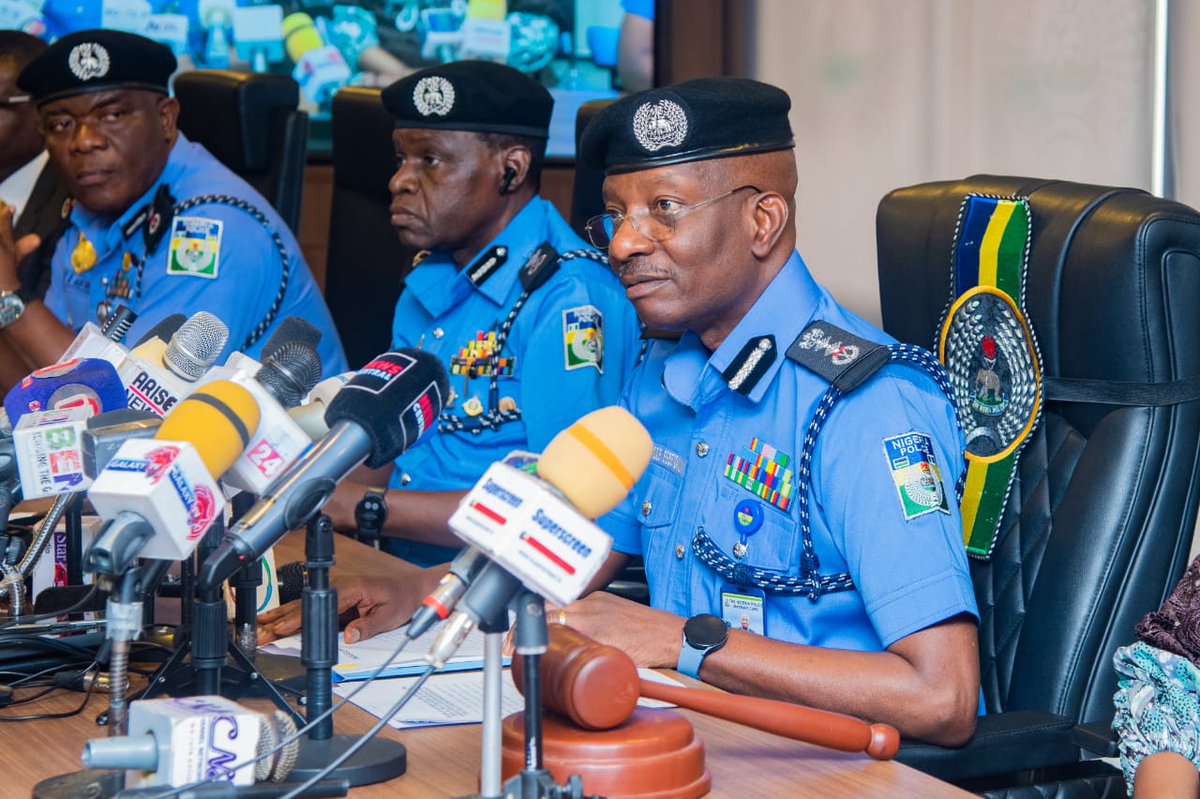The Inspector-General of Police (IGP), Kayode Egbetokun, has taken swift action in response to the growing outrage over the treatment of minors recently arraigned in a Federal High Court.
The minors, who were part of the protesters arrested during the nationwide hunger protests in August, were charged with treason, and their appearance in court last Friday has sparked widespread condemnation due to their apparent malnourishment and poor condition.
The IGP has ordered a thorough investigation into the circumstances surrounding the care and welfare of these minors while in police detention, prompting a significant response from law enforcement and child welfare experts alike.
The investigation aims to uncover the factors that led to the children’s ill-treatment, which has raised concerns about human rights violations and the handling of vulnerable individuals within Nigeria’s detention facilities.
The minors, who were arrested during the August hunger protests—a nationwide movement sparked by rising food prices and economic hardship—appeared in court on Friday after spending months in police custody.
Their emaciated and visibly malnourished state drew strong reactions from activists, civil society groups, and human rights organizations, who criticized the police for failing to provide adequate care for the detained children.
Child rights advocates have called for immediate reforms in how minors are treated in detention, pointing to the children’s frail condition as evidence of neglect and mistreatment.
READ ALSO: IGP Egbetokun defends police neutrality in Rivers election dispute, rejects Fubara’s allegations
Several groups have demanded accountability from the police, urging the government to investigate whether the minors’ basic rights, including access to food, medical care, and humane treatment, were violated.
In response to the mounting pressure, IGP Egbetokun has instructed senior officers—including all Divisional Commanders (DCs), the Criminal Investigation Department (CID), and Heads of Investigation Units—to conduct an investigation into the treatment of the minors while in custody.
The findings from the inquiry are expected to be scrutinized as the IGP vows to take “necessary actions” based on the results of the report.
The IGP, who is currently in Glasgow attending the Interpol General Assembly, received the preliminary findings of the investigation on Monday. The report confirmed concerns over the minors’ health and living conditions while in detention.
Egbetokun, in a statement issued through the Force Public Relations Officer, Olumuyiwa Adejobi, promised to thoroughly review the investigative report upon his return to Nigeria and take appropriate action.
“The Nigeria Police Force reaffirms its commitment to upholding legal frameworks, ensuring fairness, and accountability, especially for vulnerable groups such as minors,” the statement read. The IGP also emphasized that the Force will prioritize child-friendly investigations and detention practices going forward.
The arrest and subsequent court appearance of the minors have sparked a broader conversation about the rights of young protesters and the responsibility of law enforcement agencies to safeguard their welfare.
Human rights groups are urging the Nigerian government to strengthen laws and regulations around the treatment of minors in custody, ensuring that their rights are protected under both Nigerian and international law.
“We need a clear and enforceable framework for how minors are to be treated when arrested, including the provision of adequate food, medical care, and legal representation,” said Fatimah Idris, a human rights lawyer.
“The fact that these children were allowed to deteriorate to such an extent while in police custody is not just a failure of the police, but of the system as a whole.”

 Entertainment5 days ago
Entertainment5 days ago
 Health1 week ago
Health1 week ago
 Health4 days ago
Health4 days ago
 Football1 week ago
Football1 week ago
 Football1 week ago
Football1 week ago
 Crime4 days ago
Crime4 days ago
 Education6 days ago
Education6 days ago
 Crime1 week ago
Crime1 week ago

